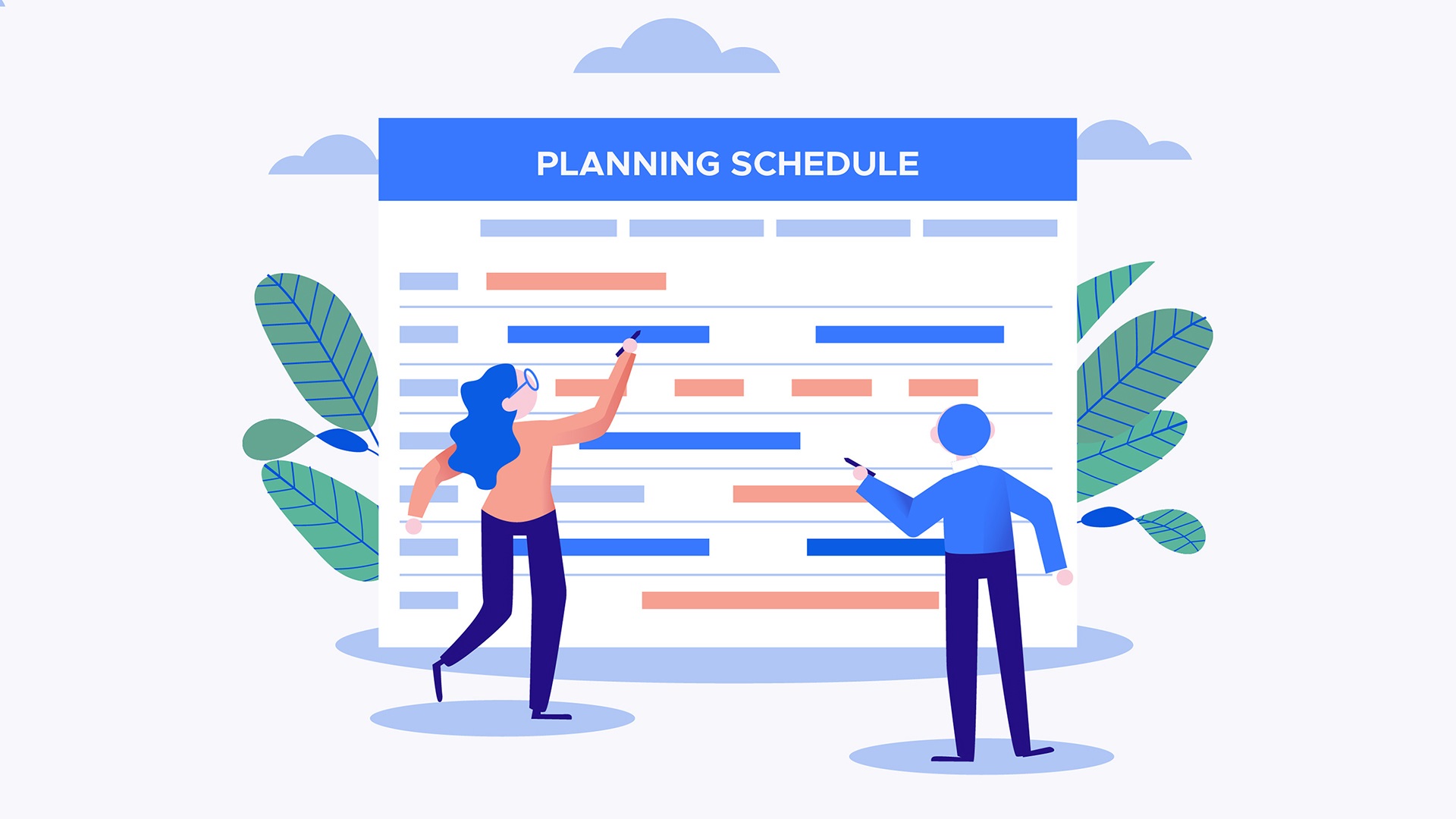
Project Coordinator: Zero To Hero
Course overview
Projects that frequently exceed budgets, schedules, and even fail are not usually the result of a lack of knowledge on the part of project managers; rather, they are primarily caused by poor project activity coordination, a breakdown in stakeholder integration and communication, and a loss of control over contractors and vendors. The daily administration of the project’s activities is known as project coordination. Project synchronization is done to facilitate a seamless workflow for your duties.
What does a project coordinator do?
Typically, a project coordinator assists the project manager in creating project plans and allocating tasks as needed. Typical daily responsibilities for a project coordinator include
- Project scheduling and organization,
- Keeping documentation current,
- Speaking with stakeholders and other team members, and
- Carrying out administrative tasks
Keeping all projects well-organized, on schedule, and under budget is the main objective of project coordinators. This calls for the development of good communication, multitasking, and attention to detail abilities. Project coordinators support the project manager by organizing work and assigning it to different departments and team members as needed. Coordination of projects well can improve the performance of your team at work.
How can a project coordinator like me succeed?
Any career or position you may choose to pursue can benefit from improving your coordination abilities. Companies usually want candidates with strong project management and coordination backgrounds since these experiences demonstrate essential skills in troubleshooting, organization, and communication.
The goal of this Training Bee training course is to get students ready to become project coordinators, who need to know what to do, when to do it, and how to do it correctly. This course gives students the know-how and proficiency to use tried-and-true methods to carry out and organize projects successfully. The training guides participants through the fundamentals of project management coordination, instilling confidence in them to use their newly acquired knowledge to boost project success.
Introduction
This is the Project Coordinator Training Course. Welcome! This course is intended to give you the fundamental abilities and information required to succeed in the exciting position of project coordinator. This training program is designed to give useful insights and useful tools to successfully traverse the problems of project coordination, regardless of whether you’re a seasoned professional trying to improve your project management talents or someone new to the sector.
Participants will use case studies, interactive discussions, and hands-on exercises to put the concepts you’ve learned into practice during this course. In addition to imparting academic information, our aim is to provide you with the necessary practical skills and insights to succeed in the exciting and demanding profession of project coordination.
We are The Training Bee, a global training and education firm providing services in many countries. We are specialized in capacity building and talent development solutions for individuals and organizations, with our highly customized programs and training sessions.
As we delve into the nuances of project coordination, get ready to go on a journey of growth, learning, and development. Together, we can improve your abilities, build your self-assurance, and put you on the route to becoming a very successful project coordinator!
Learning Objectives
Upon completing Certified Project Coordinator Course, participants will be able to:
- Exhibit a thorough comprehension of the essential ideas, guidelines, and procedures related to project coordination, planning, and controls.
- Explain how to define a project by knowing its objectives, setting priorities, and correctly scheduling the time, money, and resources required.
- Recognize the essential components of project communication and possess the skills necessary to manage stakeholders well.
- Describe a project’s critical path, schedule, scope, task dependencies, and risks in detail.
- Recognize the different phases of a project’s life cycle and the associated tasks at each level.
- Recognize the various degrees of empowerment with regard to requirements and the business case, as well as the roles and duties within a project.
- Determine the essential elements and participants for the project’s success.
Our Unique Training Methodology
This interactive course comprises the following training methods:
- Journaling – This consists of setting a timer and letting your thoughts flow, unedited and unscripted recording events, ideas, and thoughts over a while, related to the topic.
- Social learning – Information and expertise exchanged amongst peers via computer-based technologies and interactive conversations including Blogging, instant messaging, and forums for debate in groups.
- Project-based learning
- Mind mapping and brainstorming – A session will be carried out between participants to uncover unique ideas, thoughts, and opinions having a quality discussion.
- Interactive sessions – The course will use informative lectures to introduce key concepts and theories related to the topic.
- Presentations – Participants will be presented with multimedia tools such as videos and graphics to enhance learning. These will be delivered engagingly and interactively.
Training Medium
This Certified Project Coordinator Course training is designed in a way that it can be delivered face-to-face and virtually.
Course Duration
This training is versatile in its delivery. The training can be delivered as a full-fledged 40-hour training program or a 15- hours crash course covering 5 hours of content each day over 3 days
Pre-course Assessment
Before you enroll in this course all we wanted to know is your exact mindset and your way of thinking.
For that, we have designed this questionnaire attached below.
- How do you think a project coordinator’s duties and position fit together?
- Could you enumerate the three most important abilities you believe a project coordinator should possess?
- Give a brief explanation of the normal project life cycle phases.
- How does a project coordinator’s job description change as the project progresses through its many stages?
- Why is good communication crucial to the coordination of a project?
- When communicating with stakeholders who have competing interests, how would you approach the situation?
- Identify the three key documents that are frequently used to coordinate projects.
- What is a project charter used for, and how does it help ensure project success?
- What role does risk management play in the coordination of projects?
Course Modules
This Certified Project Coordinator Course covers the following topics for understanding the essentials of the Agile Workplace:
Module 1 – Overview of Project Management
- An Overview of Project Management
- Structure for project management Project Features
- The Meaning of a Project Manager
- Functions and Roles of a Project Manager
- Capabilities for Project Management
- Alignment of Projects with Business and Corporate Strategies
Module 2 – The Life Cycle of Project Management
- Procedures for project management
- Starting
- Organizing
- Carrying out
- Keeping an eye on and managing
Module 3 – Formulating the Project Charter
- Specifying a project
- Project Goals and Objectives
- Project Limitations
- Team Assignment
- Roles and Duties in a Team
- Project Tracking and Assessment
Module 4 – Management of Project Stakeholders
- Finding the Project’s Stakeholders
- Matrix of stakeholders
- Plan of Communication
- Vital Communication Skills for Projects
Module 5 – Recognizing Organizational Structures
- Structures of Organizations
- Operational Structure
- Fragile Matrix Structure
- Robust Matrix Structure
- Organized in a Balanced Matrix
- Organization Projected
Module 6 – Critical Path Analysis, Gantt charts, and project scheduling
- Structure of work breakdown
- Describe Your Activities
- Activities in Sequence
- Project Timetable Development
- Gantt charts in Excel vs MS Project
- Task sequencing for projects
- To your Gantt chart, add resources.
Module 7 – Calculating Project Expenses
- Manage Costs with a Plan
- Calculate Expenses
- Creating Budgets for Projects
- Reduce Expenses
Module 8 – Resource Distribution and Smoothing
- Organize your Human Resource Management.
- Obtain Project Staff
- Form a Project Team
- Mobilization of Resources
- Acquisition and Administration of Projects
Module 9 – Project Management and Progress Reporting
- Reports on Project Management
- Value Earned
- Important Earned Value Terms
- Integrating Timetable and Expenses
- Report on Project Status
- Variance in Schedule
- Variance in Cost
- Index of Schedule Performance
Post-course Assessment
Participants need to complete an assessment post-course completion so our mentors will get to know their understanding of the course. A mentor will also have interrogative conversations with participants and provide valuable feedback.
- Describe how your approach to project management has changed as a result of the knowledge you have learned in this course.
- Describe how the training has specifically improved your capacity to develop and manage project documentation.
- Consider how the course material has improved your capacity to recognize, evaluate, and manage project coordination risks.
- Tell us how the methods and resources you learned in the course have changed the way you create and oversee project schedules.
Lessons Learned
A Comprehensive View on Project Management: By now, participants ought to have acquired a thorough grasp of the duties associated with project coordination, including everything from start to finish.
The Foundation of Effective Communication: Stress how important it is to communicate well when coordinating a project, both inside the team and with stakeholders at all different levels.
Flexibility and Adaptability Are Essential: In light of shifting stakeholder needs, unforeseen obstacles, and project requirements, emphasize the need of flexibility.
Strategic Management of Stakeholders: It should have become clear to participants how to handle stakeholders effectively by taking into account their varied interests and fostering constructive relationships.
Project Documentation That Is Organized: Emphasize the value of well-structured project documentation, emphasizing how it acts as a historical record for future reference and a project team road map.
Preventive Risk Reduction: Emphasize that early risk identification, evaluation, and mitigation greatly increase project success and reduce the likelihood of setbacks.
Effective Methods for Project Scheduling: In order to guarantee project delivery on time, participants should have gained practical experience in developing and overseeing project schedules and using tools and procedures.
Cooperative dynamics within a team: Emphasize the value of creating a cooperative team atmosphere and offer advice on how to deal with obstacles in diverse and dynamic teams.






